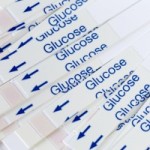Posts Tagged ‘insulin resistance’
Mt. Everest Study Details How Type 2 Diabetes Develops
Researchers from the University of Southampton and University College London conducted a study on Mt. Everest to determine how low oxygen levels in the body, which is known as hypoxia, may be linked to the development of insulin resistance. It also provides some added insight on how type 2 diabetes can develop.
The researchers used the high altitudes of Everest to simulate the low oxygen levels. The study, called t
Blocking Sugar Intake May Reduce Cancer Risk In Diabetics
Researchers from the Icahn School of Medicine found out that blocking dietary sugar and its activity in tumor cells might reduce cancer risk and progression. The study provides some insight as to how certain metabolic-related conditions such as diabetes and obesity are linked to certain types of cancers. The results of the said study were published in the journal Cell.
Medical experts have long known about the asso
Air Pollution May Increase Insulin Resistance In Kids
A recent study indicated that areas where there is an increase in air pollution also raises the risk of insulin resistance in kids. This condition is considered as a precursor to the development of diabetes. The findings of the research are published in Diabetologia, the journal for the European Association for the Study of Diabetes or EASD.
The said research aimed to explore the association between air pollution a
Lack of Sleep Results In Insulin Resistance in Teens
It has been known that sufficient sleep plays an important role in a person’s health. In the case of teenagers, sleep may be associated with a lot of conditions. In a recent study, the amount of sleep that teens get could affect their body’s insulin resistance that can also determine the development of diabetes in the future.
The researchers from the University of Pittsburg tracked the sleep duration an



